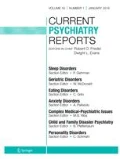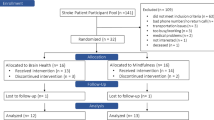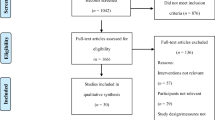Abstract
In this article, the authors review the current empiric literature on early interventions. Findings on the effects, course, help-seeking, and recovery from disasters are first reviewed, with recommendations given that are pertinent to intervention following mass casualties. In reviewing the most commonly used interventions, it is clear that evidence from well-controlled studies showing that early intervention can help prevent longer-term problems is limited. The authors discuss the approaches that have received the most attention or empiric support as early interventions following trauma, which include psychologic debriefing, cognitive-behavioral interventions, eye movement desensitization and processing (EMDR) and other neoteric approaches, and psychopharmacology. At this time, the most promising results for prevention of psychopathology have been achieved with brief four- or five-session cognitive-behavioral therapy. In contrast, randomized clinical trials on psychologic debriefing currently suggest that this approach is either ineffective at preventing psychopathology, or contributive to posttraumatic stress disorder symptoms. Research support is currently lacking for EMDR and pharmacotherapy as early interventions. A major challenge to the field is to integrate the practical experience and knowledge of professional responders with well-controlled, timely intervention research, and to effectively disseminate these findings to practitioners in the field.
Similar content being viewed by others
References and Recommended Reading
Norris FH, Friedman MH, Watson PJ, et al.: 50,000 disaster victims speak: an empirical review of the empirical literature, 1981–2001. Psychiatry 2002, In press.
Orner R: A new evidence base for making early intervention in emergency services complementary to officers’ preferred adjustment and coping strategies. In Early Intervention for Psychological Trauma. Edited by Schneider U. Oxford: Oxford University Press; 2002. Assessed critical incident distress in 118 front-line responders and 99 second-line responders. Although 74% reported their emotional reaction to at least one critical incident as being overwhelming, only 6% reported intrusive symptoms consistent with acute stress disorder or post-traumatic stress disorder.
North CS, Spitznagel EL, Smith EM: A prospective study of coping after exposure to a mass murder episode. Ann Clin Psychiatry 2001, 2:81–87.
Sprang G: Coping strategies and traumatic stress symptomatology following the Oklahoma City bombing. Soc Work Soc Sci Rev 2000, 8:207–218.
Weisaeth L: Acute posttraumatic stress: nonacceptance of early intervention. J Clin Psychiatry 2001, 61(suppl):35–40.
Watson PJ, Friedman MJ, Ruzek JI: Early interventions for trauma-related problems. Ann Rev Psychiatry 2002, In press.
Rose S, Brewin CR, Andrews B, Kirk M: A randomized controlled trial of individual psychological debriefing for victims of violent crime. Psychol Med 1999, 29:793–799.
Mayou RA, Ehlers A, Hobbs M: Psychological debriefing for road traffic accident victims. Br J Psychiatry 2000, 176:589–593.
Deahl MP, Srinivasan M, Jones N, et al.: Evaluating psychological debriefing: are we measuring the right outcomes? J Trauma Stress 2001, 14:527–529.
Campfield KM, Hills AM: Effect of timing of critical incident stress debriefing (CISD) on posttraumatic symptoms. J Trauma Stress 2001, 14:327–340.
Eid J, Johnsen BH, Weisaeth L: The effects of group psychological debriefing on acute stress reactions following a traffic accident: a quasi-experimental approach. Int J Emerg Ment Health 2001, 3:145–154.
Litz BT, Gray MJ, Bryant RA, Adler AB: Early intervention for trauma: current status and future directions. Clin Psychol Sci Pract 2002, In press. This review identifies the core issues in early intervention that need to be addressed in resolving the debate of psychologic debriefing. It critiques the available evidence for psychologic debriefing and the early provision of cognitive-behavioral therapy, and gives clear and sound reasons why studies are not methodologically sound. Guidelines for managing acutely traumatized individuals are suggested, and standards are proposed to direct future research that may advance our understanding of the role of early intervention in facilitating adaptation to trauma.
Rose S, Bisson JI, Wessely SC: Psychological debriefing for preventing post-traumatic stress disorder (PTSD). Cochrane Database Syst Rev 2001, 1:CD002962. The Cochrane Collaborative method of literature review was used to examine empiric studies of debriefing. The authors concluded that debriefing does not reduce the risk of developing post-traumatic stress disorder or reduce the symptoms of depression or anxiety. Practice and research implications are provided.
Bisson JI, McFarlane AC, Rose S: Psychological debriefing. In Effective Treatments for PTSD: Practice Guidelines from the International Society for Traumatic Stress Studies. Edited by Foa EB, Keane TM, Friedman MJ. New York: Guilford Press; 2001:317–319.
Shalev AY: What is posttraumatic stress disorder? J Clin Psychiatry 2001, 62(suppl):4–10.
Raphael B, Minkov C, Dobson M: Psychotherapeutic and pharmacological intervention for bereaved persons. In Handbook of Bereavement Research: Consequences, Coping, and Care, edn 1. Edited by Stroebe MS, Hansson RO, Stroebe W, Schut HAW. Washington: American Psychological Association; 2001:587–612.
Solomon Z, Neria Y, Witztum E: Debriefing with service personnel in war and peace roles: experience and outcomes. In Psychological Debriefing: Theory, Practice and Evidence. Edited by Wilson JP, Raphael B. Cambridge University Press; 2000:161–173.
Silove D: A conceptual framework for mass trauma: implications for adaptation, intervention and debriefing. In Psychological Debriefing: Theory, Practice and Evidence. Edited by Wilson JP, Raphael B. Cambridge University Press; 2000:337–350.
Weisæth L: Briefing and debriefing: group psychological interventions in acute stressor situations. In Stress Debriefing: Theory, Practice and Evidence. Edited by Raphael B, Wilson J. London: Cambridge University Press; 2000.
Bryant RA, Harvey AG, Dang ST, et al.: Treatment of acute stress disorder: a comparison of cognitive-behavioral therapy and supportive counseling. J Consult Clin Psychol 1998, 66:862–866.
Bryant RA, Sackville T, Dang ST, et al.: Treating acute stress disorder: An evaluation of cognitive behavior therapy and supportive counseling techniques. Am J Psychiatry 1999, 156:1780–1786. This is one of the most methodologically strong intervention studies for acute stress disorder. The study aimed to prevent post-traumatic stress disorder by an early provision of cognitive-behavioral therapy. The findings suggest that post-traumatic stress disorder can be effectively prevented with an early provision of cognitive-behavioral therapy, and that prolonged exposure may be the most critical component in the treatment of acute stress disorder.
Foa EB, Hearst-Ikeda DE, Perry KJ: Evaluation of a brief cognitive-behavioral program for the prevention of chronic PTSD in recent assault victims. J Consult Clin Psychol 1995, 63:948–955.
Echeburua E, deCorral P, Sarasua B, Zubizarreta I: Treatment of acute posttraumatic stress disorder in rape victims: An experimental study. J Anxiety Disord 1996, 10:185–199.
Gidron Y, Gal R, Freedman SA, et al.: Translating research findings to PTSD prevention: results of a randomizedcontrolled pilot study. J Trauma Stress 2001, 14:773–780.
Lange A, van de Ven J, Schrieken B, Emmelkamp PMG: Interapy: treatment of posttraumatic stress through the Internet: A controlled trial. J Behav Ther Exp Psychiatry 2001, 32:73–90.
Bryant RA, Harvey AG: Acute Stress Disorder: A Handbook of Theory, Assessment, and Treatment. Washington, DC: American Psychological Association; 2000. This book is the most comprehensive and empirically based handbook on acute stress disorder. Part one contains a descriptive overview of acute stress disorder, part two provides guidelines for assessment, and part three reviews treatments of post-traumatic stress and provides guidelines on the treatment of choice for acute stress disorder. Part four addresses clinical issues such as acute stress disorder in different trauma populations, the distinction between acute stress disorder and critical incident stress, and legal issues.
Solomon RM: Utilization of EMDR in crisis intervention. Crisis Intervent Time-Limited Treatment 1998, 4:239–246.
Davidson PR, Parker KCH: Eye movement desensitization and reprocessing (EMDR): a meta-analysis. J Consult Clin Psychol 2001, 69:305–316.
Chemtob CM, Tolin DF, Van der Kolk BA, Pitman RK: Eye movement desensitization and reprocessing. In Effective Treatments for PTSD: Practice Guidelines from the International Society for Traumatic Stress Studies. Edited by Foa EB, Keane TM, Friedman MJ. New York: Guilford Press; 2000:333–335.
Macklin M, Metzger LJ, Lasko NB, et al.: Five-year follow-up study of eye movement desensitization and reprocessing therapy for combat-related posttraumatic stress disorder. Compr Psychiatry 2000, 41:24–27.
Devilly GJ, Spence SH: The relative efficacy and treatment distress of EMDR and a cognitive-behavior trauma treatment protocol in the amelioration of posttraumatic stress disorder. J Anxiety Disord 1999, 13:131–157.
Herbert JD, Lilienfeld SO, Lohr J, et al.: Science and pseudoscience in the development of eye movement desensitization and reprocessing: implications for clinical psychology. Clin Psychol Rev 2002, In press.
Shalev AY, Ursano RJ: Mapping the Multidimensional Picture of Acute Responses to Traumatic Stress. In Early Intervention for Psychological Trauma. Edited by Schneider U. Oxford: Oxford University Press; 2002. Presents a multidimensional framework for understanding acute response to trauma. The authors define four phases of impact, rescue, recovery, and return to life, and for each of the phases, the authors define the principal stressor, the concrete goals of behavior, psychologic tasks, salient behavior patterns, the role of all helpers, and the role of professional helpers.
Pitman RK, Sanders KM, Zusman RM, et al.: Pilot study of secondary prevention of post-traumatic stress disorder with Propranolol. Biol Psychiatry 2002, 51:189–192. This pilot study addressed the hypothesis that preclinical considerations suggest that treatment with a beta-adrenegic blocker following an acute psychologically traumatic event may reduce subsequent post-traumatic stress disorder symptoms. Results suggest that acute, post-trauma propanolol may have a preventive effect on subsequent post-traumatic stress disorder.
Stanovic JK, James KA, VanDevere CA: The effectiveness of risperidone on acute stress symptoms in adult burn patients: a preliminary retrospective pilot study. J Burn Care Rehab 2001, 22:210–213.
Robert R, Blakeney PE, Villarreal C, et al.: Imipramine treatment in pediatric burn patients with symptoms of acute stress disorder: a pilot study. J Am Acad Child Adolesc Psychiatry 1999, 38:873–878.
Gelpin E, Bonne O, Peri T, et al.: Treatment of recent trauma survivors with benzodiazepines: a prospective study. J Clin Psychiatry 1995, 57:390–394.
Friedman MJ, Matthew J, Jonathan RT, et al.: Pharmacotherapy. In Effective Treatments for PTSD: Practice Guidelines from the International Society for Traumatic Stress Studies. Edited by Foa EB, Keane TM, Friedman MJ, Matthew J. New York: Guilford Press; 2000:326–329.
Halligan SL, Yehuda R: Cognitive and biologic components involved in the development of posttraumatic stress disorder. Prim Psychiatry 2001, 8:50–56.
Brady K, Pearlstein T, Asnis GM, et al.: Efficacy and safety of sertraline treatment of posttraumatic stress disorder: a randomized controlled trial. JAMA 2000, 283:1837–1844.
Davidson JRT, Rothbaum BO, Van der Kolk BA, et al.: Multicenter, double-blind comparison of sertraline and placebo in the treatment of posttraumatic stress disorder. Arch Gen Psychiatry 2001, 58:485–492.
Marshall RD, Beebe KL, Oldham M, Zaninelli R: Efficacy and safety of paroxetine treatment for chronic PTSD: A fixeddose, placebo-controlled study. Am J Psychiatry 2001, 158:1982–1988.
Tucker P, Zaninelli R, Yehuda R, et al.: Paroxetine in the treatment of chronic PTSD: results of a placebo-controlled, flexible-dosage trial. J Clin Psychiatry 2001, 62:860–868.
Davidson J, Pearlstein T, Londborg P, et al.: Efficacy of sertraline in preventing relapse of posttraumatic stress disorder: Results of a 28-week double-blind, placebocontrolled study. Am J Psychiatry 2001, 158:1974–1981.
Londborg PD, Hegel MT, Goldstein S, et al.: Sertraline treatment of posttraumatic stress disorder: results of 24 weeks of open-label continuation treatment. J Clin Psychiatry 2001, 62:325–331.
Rappaport MH, Endicott J, Clary CM: Posttraumatic stress disorder and quality of life: results across 64 weeks of sertraline treatment. J Clin Psychiatry 2002, 63:59–65.
Cohen JA, Perel JM, DeBellis MD, et al.: Treating traumatized children: clinical implications of the psychobiology of posttraumatic stress disorder. Trauma Violence Abuse 2002, 3:91–108.
Author information
Authors and Affiliations
Rights and permissions
About this article
Cite this article
Watson, P.J., Friedman, M.J., Ruzek, J.I. et al. Managing acute stress response to major trauma. Curr Psychiatry Rep 4, 247–253 (2002). https://doi.org/10.1007/s11920-996-0043-x
Issue Date:
DOI: https://doi.org/10.1007/s11920-996-0043-x




